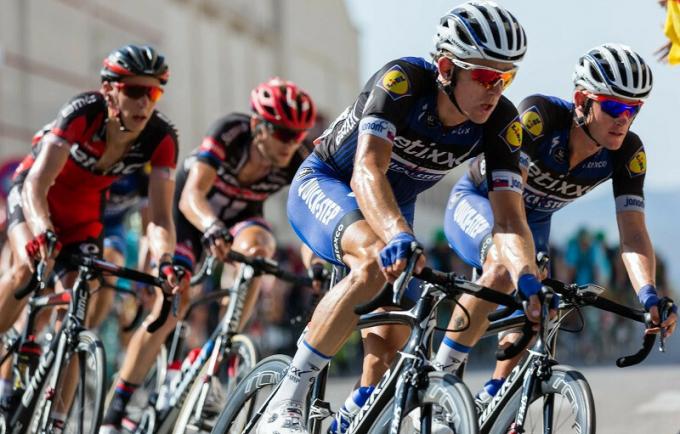Anxiety in sport and its relationship with the risk of injury
The world of sports has a great capacity to emotionally involve those who get into it; And if we talk about the world of professional or semi-professional sports competition, the intensity of that intense experience multiplies, for better or for worse.
Athletes must face daily situations that not only require technical ability from them; it is also essential to develop psychological self-regulation skills, something that is reflected both on a subjective level (the degree of well-being or discomfort experienced) and objective (sports performance and health).
In this sense, competitive anxiety is a key phenomenon, since in addition to influencing the way in which the athlete performs when trying to achieve his goals, It is one of the elements to keep in mind in the prevention of injuries and in recovery after an injury has already occurred. Luckily, there are ways to learn how to manage it properly.
- Related article: "What is Sports Psychology? Learn the secrets of a booming discipline"
How are competitive anxiety management and injury risk related?
Next we will see how the management of competitive anxiety influences the risk of suffering injuries or relapses, a topic of great importance for those who spend a good part of their time competing or trying to beat their own records.
1. Increases the risk of self-sabotage
Anxiety in sports competition situations increases the risk of self-sabotaging behaviors, which are those that we put into practice unconsciously and that go against our interests and goals.
Some of these self-sabotaging behaviors stem from self-fulfilling prophecies., that is, believing that we will do a movement or a chain of movements required in the competition wrong, a thought that ends up being fulfilled in reality because our attention is divided and a part of us anticipates that this action will not be carried out correctly. perfect.
In other words, when we harbor this type of belief about what will happen to us, attention is divided and the risk of losing coordination is increased and fail in exercises that in normal circumstances we dominate. And we must forget that competitive anxiety is, basically, a form of anticipatory anxiety: we fear a hypothetical reality that, due to that feeling of panic or loss of control over what we do, ends up giving rise to a vicious circle of intense stress and prediction of self-sabotage.
- You may be interested in: "Self-sabotage: causes, characteristics and types"
2. Tendency not to attend to signals from one's own body
Dysfunctional perfectionism is one of the greatest enemies that athletes have, since it pushes them to make decisions with ill-measured consequences regarding their body and to carry out reckless activities that put their physical integrity at risk.

This perfectionism leads to ignoring the signals that their own body sends them and that in other situations would tell them when it is necessary to stop to rest or when they are forcing themselves too much "machine".
That is why it is so important, and especially in competitive sports, to always listen to our body and always identify the signals that the organism itself emits and that tells us that we must stop.
- Related article: "How does excessive exercise affect us psychologically?"
3. Increases the risk of overexertion
Poor stress management can also lead us to try to overcompensate for that by trying too hard., thus increasing muscle and joint wear.
Some athletes tend to push their bodies to the limit both in training and in competitions, in the face of a competitive anxiety management deficit, which usually ends up causing serious injuries to their body.
4. Autosuggestion
Competitive anxiety leads us to auto-suggest ourselves to the point of assume that we have recovered from an injury prematurely, causing those wounds not to heal completely.
Often, an excess of self-confidence ends up having these kinds of counterproductive effects, since you don't the natural times that the body needs to recover from an injury are not respected or taken into account.
This has very negative psychological effects on the athlete and also directly affects their self-esteem and self-efficacy.
- You may be interested in: "Suggestion: what is it, what is it for and types"
5. Increases the risk of psychological problems
Lastly, poor stress management and competitive anxiety can lead to other psychological alterations develop in the person due to the snowball effect, or even houses of insomnia. This, in turn, makes it harder to concentrate on what you are doing due to general malaise and lack of rest, so that coordination errors of movements are more likely to arise.
Are you looking for psychological assistance for athletes?
If you are interested in having psychology and coaching services for professional or semi-professional athletes and sports clubs, contact us.
In UPAD Psychology and Coaching We have many years of experience in the field of Sports Psychology and training for athletes, and we offer our specialized services in person and online.
